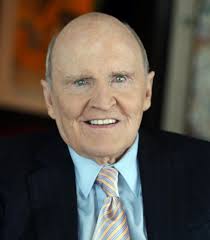Long-time GE CEO Jack Welch Dies at 84
Credit to Author: Darrell Proctor| Date: Mon, 02 Mar 2020 15:10:04 +0000
The post Long-time GE CEO Jack Welch Dies at 84 appeared first on POWER Magazine.
Jack Welch, the chief executive of General Electric (GE) during a period of great prosperity for the company, and considered one of America’s most influential CEOs, died March 1 at his home in Salem, Massachusetts. He was 84.
His wife, Suzy Welch, on Monday said the cause of death was renal failure. In a statement released to CNBC, Suzy Welch said, “More than anything else—leader, business icon, management genius—more than those things, although they are all true too—Jack was a life force made of love. And somehow, crazily somehow, he also managed to be the greatest husband and step-father who ever lived, giving our family twenty amazing years of adventure, happiness, and joy. Our hearts, so much larger and fuller having known and loved him, are broken.”
“Today is a sad day for the entire GE family,” GE Chairman and CEO Larry Culp said in a statement. “Jack was larger than life and the heart of GE for half a century. He reshaped the face of our company and the business world.”
President Trump in a tweet said Welch was a friend and “business legend … There was no corporate leader like ‘neutron’ Jack.”
Welch, son of a railroad conductor and born in 1935, took over GE in 1981 and led the company for 20 years before retiring in 2001. The company’s market value grew from $14 billion to $410 billion during his tenure, and the company’s revenues jumped fivefold. He turned GE into the world’s second most-valuable company, behind only Microsoft.
Welch received a severance payment of $417 million when he retired. Fortune magazine named him the “Manager of the Century,” and in 2000 The Financial Times named GE “The World’s Most Respected Company” for the third straight year. The New York Times in an editorial upon his retirement wrote, “Mr. Welch was a white-collar revolutionary, bent throughout his career at G.E. on championing radical change and smashing the complacency of the established order. His legacy is not only a changed G.E., but a changed American corporate ethos, one that prizes nimbleness, speed and regeneration over older ideals like stability, loyalty and performance.”

Welch, whose given name was John Francis Welch Jr., was known for a combative management style. He was called “Neutron Jack” after cutting tens of thousands of jobs at the company. He also moved to streamline GE’s bureaucracy, giving department heads more leeway to adopt changes they deemed beneficial to the company’s finances.
“I think strategy, execution and people all go together, and if you don’t get the people right, the strategy doesn’t matter,” Welch said in his writings. “And if you don’t get the people right, you won’t get the execution. So you’re dead.
“One of the jobs you have as a manager is to pump everyday self-confidence into your team to make them feel great, to make people like me feel like I’ve got a full head of hair and I’m six-foot-10,” he wrote. Welch himself was bald, and about 5-foot-7. “That’s what you want to do,” he wrote. “You want to get into people’s skin and excite them about where you’re going.”
GE Expansion
He acquired and also sold several businesses during his time at GE, and moved the company into new areas, including consulting and financial services. GE Capital Bank was founded in the late 1980s.
He acquired RCA, which at the time owned NBC, and also bought Kidder Peabody, a brokerage that later was hit in an insider trading scandal.
Welch while at GE invented what was known as the “vitality curve,” in which managers were broken into three groups—A, B, and C. The C group included the bottom 10%, of which Welch said, “The underperformers generally had to go,” in his 2001 book “Jack: Straight From the Gut.”
The book noted how GE’s workforce went from 411,000 to 299,000 during the first five years of Welch’s tenure. That brought him the “Neutron Jack” nickname, because of how the neutron bomb was designed to kill multitudes without destroying cities.
Welch studied chemical engineering at the University of Massachusetts-Amherst and received his Ph.D. from the University of Illinois in 1960. He joined GE in 1960 as a chemical engineer in its plastics division in Pittsfield, Massachusetts. He became a vice president in 1972 and vice chairman seven years later.
He took over as chairman and CEO in April 1981, at age 45, succeeding Reginald H. Jones. As part of his strategy for the company, he said each GE division needed to be a market leader, often saying, “fix it, close it, or sell it.”
Welch handpicked his successor at GE, Jeffrey Immelt, whose tenure was marked by financial difficulties for the company as energy markets changed and the global economy struggled, including the Great Recession in the U.S. in 2008-09. The company also was hampered by an ill-fated acquisition of French energy company Alstom. Immelt resigned in 2017.
Immelt was succeeded by John Flannery, who lasted just more than a year as CEO. GE was removed from the Dow Jones Industrial Average after 110 years under Flannery’s watch. He was succeeded by Culp in late 2018. GE market valuation today is about $95 billion.
—Darrell Proctor is a POWER associate editor (@DarrellProctor1, @POWERmagazine).
The post Long-time GE CEO Jack Welch Dies at 84 appeared first on POWER Magazine.